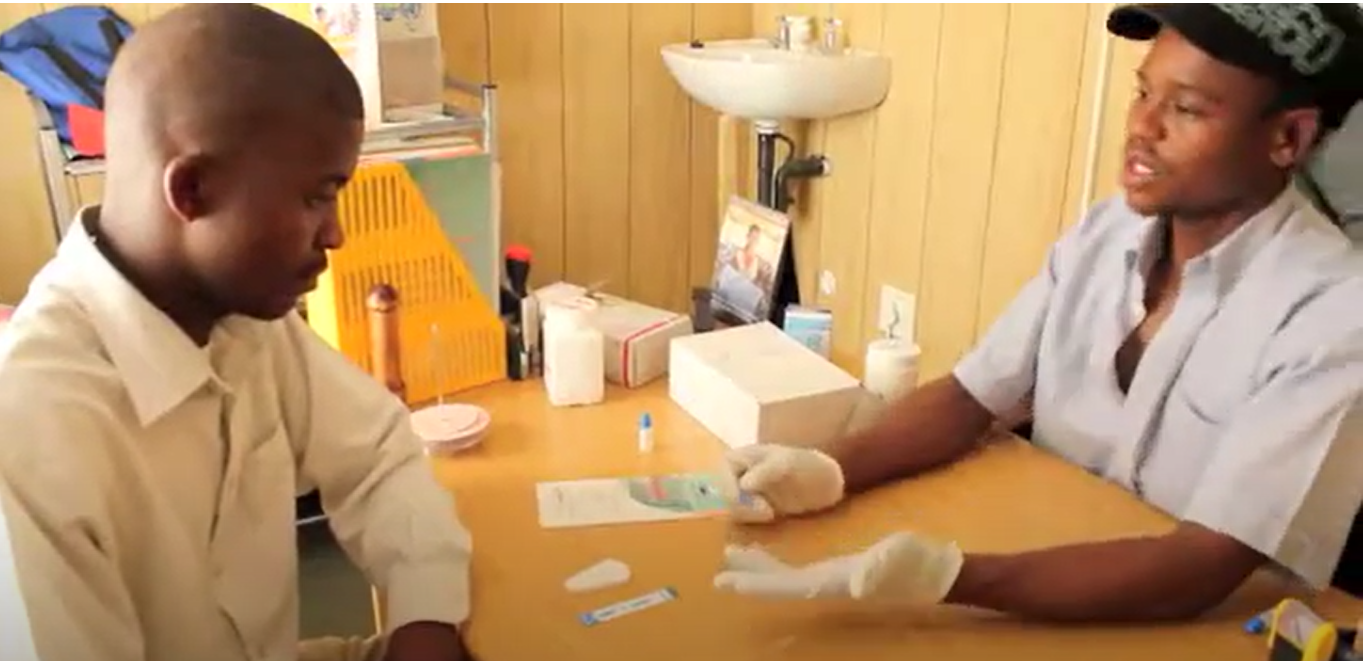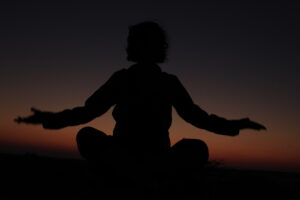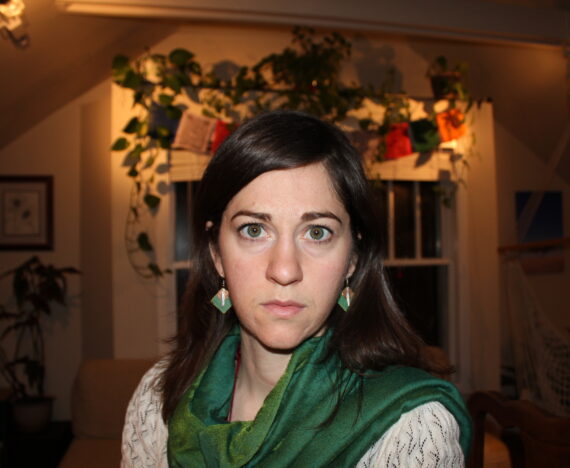Botswana: My First HIV Test

“Two lines is positive. One line is negative. You got it?”
I’m curious. How does it work? What happens behind that closed door?
I work in a small caravan, much like a trailer you would find in Canada. No bathroom, just three basic rooms, one of which is my office, which I share with Thato, a Botswana government funded student intern. The entrance to the caravan leads into a waiting area, filled with graphic posters of sexually transmitted diseases and messages of safe intercourse. There are two couches, which see a lot of action at lunchtime. I play chess with any willing opponent. The staff are desensitized to the images of infected genitalia.
On the far left is the HIV Rapid testing room. Walking inside, you feel a sense of comfort but it is met with a unique uncertainty. A large desk dominates most of the room; two cushioned dining chairs sit opposite a large, comfortable, leather reclining computer chair (I learn later the chair is broken and in fact a hand-me-down to the office). The back left corner has a sink with cold water and a vitamin bottle is filled with green soap. There is no towel to dry your hands, I learned quickly that the African sun is the best dryer.
“How does this all go down Roni? How does this HIV test work?” Roni is a lay counselor who works for Botswana Family Welfare Association. He sees between six and fifteen people each day, assessing their status.
“Well it’s easy really,” he says, “the whole thing takes about forty minutes. There is time for a test and on-the-spot counseling.” I am curious, I want to know more, but I wasn’t ready for what Roni would say next: “Just get tested.”
A weird tension fills my throat, there is an increase in anxiety, a jittery leg and quick, defensive responses, “Ah, no. I don’t want to.”
“There’s nothing to be afraid of.”
“I just don’t want to.” I leave the room, fighting fear. I am very afraid. I am scared of what the test could possibly tell me. It’s real this fear and it’s taking over my mind and body. My best defense? Don’t get tested.
The saddest part is that I am not alone. Gaborone must have hundreds or thousands of people who live with the same fear every day. How can I promote safe sex and work on a communication strategy for sexual health when I am afraid of my own status? I face the fear and ask Roni to test me.
I am on the edge of the purple cushioned dining chair now, my palms are sweaty and my heart racing. Roni sits across from me and he sanitizes my right middle finger with an alcohol cotton swab. He removes a small blue piece of plastic from a bag of several units. The blue plastic represents a clean sanitized sharp device designed to be used only once. He pricks my finger and I see the blood. My heart is in my throat. He removes the blood from my finger with a long, plastic dropper; the blood is then placed on two separate and different HIV tests.
“Two lines is positive. One line is negative. You got it? Two lines is positive, one is negative.” I stare at the test, I stare and stare, slowly but surely a single line appears. HIV negative.
“What does the test say, Sarah?” Roni forces me to read the test myself. It’s an important technique. I must accept the results – positive or negative and to do that I can’t be told my status, I must see it and understand it for myself.
I know rationally and logically testing positive is unlikely for me but immersing myself in this Botswana culture has allowed me to feel like the people I live and work with, including the fear of testing for HIV.
Know your status.
Ka kagiso!
Sarah
This is a column written for publication in my hometown local newspaper, The Grand Falls Windsor Advertiser.
_________________________
Grand Falls Windsor native, Sarah Furey, is volunteering on a HIV/AIDS communication project with Botswana Family Welfare Association in Gaborone, Botswana, Africa for six months. She received her Bachelor’s of Information Systems from StFX University and is exercising her skills as a technical assistant. Her internship is funded by CIDA (Canadian International Development Agency) in conjunction with The Coady International Institute. Questions or comments are welcomed at [email protected].





